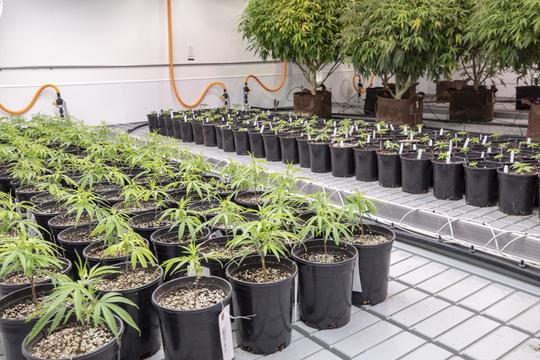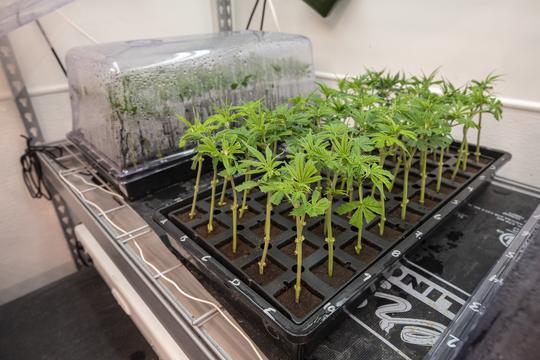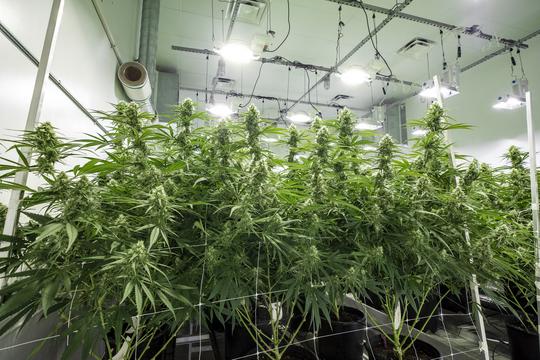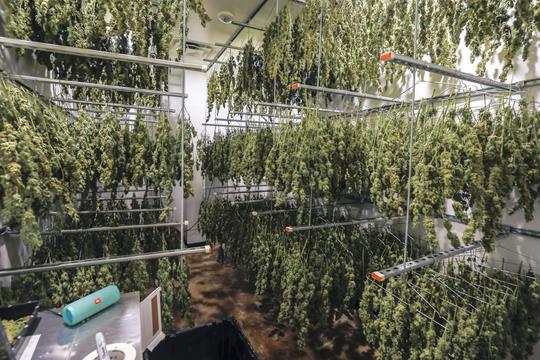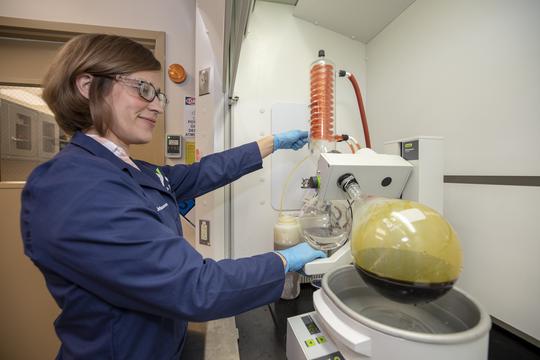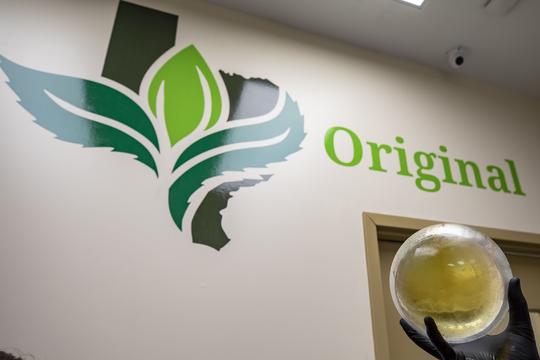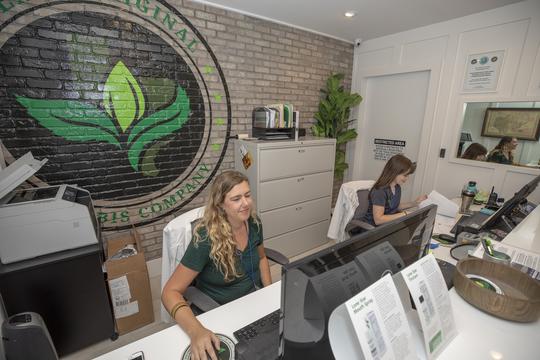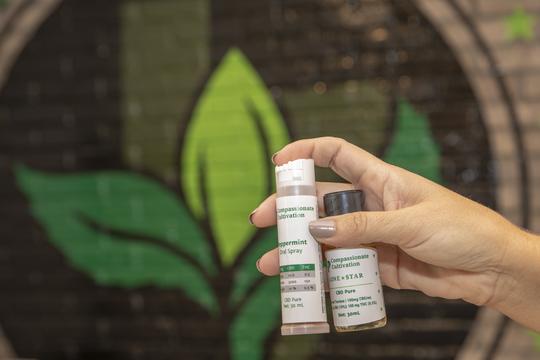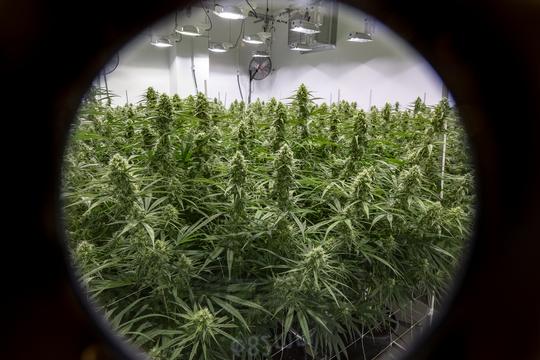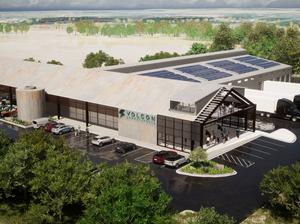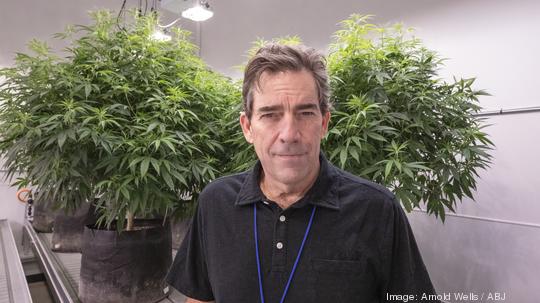
When Morris Denton talks about cannabis regulations in Texas, he often refers to a basic phrase: "crawl, walk, run."
“In a state like Texas, with conservative leadership, with conservative governance, with a conservative legislature and only a chance to expand the laws every other year, each session is really important,” said Denton, CEO of Texas Original Compassionate Cultivation, which is based in Austin.
Compared to most of its U.S. peers, Texas is continuing to crawl.
After gaining approval from state lawmakers in 2015, Texas launched a highly regulated medical cannabis program for people with intractable epilepsy that limited the amount of tetrahydrocannabinol, or THC, in the plant to 0.5%. Last year, lawmakers expanded the program to allow people with a handful of other chronic medical conditions, such as terminal cancer, Parkinson's disease and multiple sclerosis, to get prescriptions.
But since then, federal regulations have allowed for cannabinoid oils containing up to 0.3% THC to be sold just about anywhere. That's created a relatively small gap for businesses like Texas Original Compassionate Cultivation that involves doctors prescribing specific dosages of both CBD and THC content.
More than a dozen cannabis-related bills have already been filed for the 2021 legislative session, including proposals to decriminalize or create recreational-use programs. But incremental change may be more likely than a Colorado-style marketplace for marijuana.
Denton said he hopes to see Texas expand its medical cannabis program by removing restrictions on THC levels while continuing to require doctor's prescriptions and ongoing oversight through a patient's journey. He also hopes to see prescription cannabis become available for almost any condition where doctors believe it will help the patient.
For example, Texas law allows patients with terminal cancer to use the medicine, but not those with stage 4 cases. The same is true with chronic pain. While a patient with MS can use the low-THC cannabis, someone with similar pain from a different cause cannot legally use it and might instead be prescribed opioids or other painkillers.
“There’s a lot of proof right here in Texas of how this medicine has been able to change people’s lives and change families’ lives, so we’re optimistic that legislators are paying attention and will see what we’ve done and will be willing to expand the program in 2021," he said.
Denton said it's nearly impossible to predict how lawmakers might address cannabis during any legislative session, especially one dominated by the impacts of the Covid-19 pandemic.
Currently, there are about 3,500 approved cannabis patients in Texas and there are three approved cannabis businesses, Denton said. But if the state opens cannabis use for more conditions and reduces regulations on THC content, it could become a larger industry that helps patients, Denton said.
"I hope that Texas does the right thing. Will they? Your guess is as good as mine," he said. "I think the majority of legislators want to see it."
Below: Take a tour of Compassionate Cultivation's South Austin facility from 2019.
Behind the scenes with a cannabis grower
John R. Pitts, founder of lobbying firm Texas Star Alliance, said lawmakers may be open to expanding use cases — but are unlikely to allow more THC in the medicine.
“We’re not looking at increasing the percentage of THC as much as we’re looking at increasing the number of diseases that can be treated," he said. "There will be a bill that will be filed shortly."
Few people give full legalization of marijuana much of a chance.
“I think medical marijuana has a chance," Pitts said. "I don’t think recreational marijuana has any chance of passing in this session."
Jim Arnold, a lobbyist with Arnold Public Affairs, hasn't seen any guesses at how much revenue expanded medical cannabis could generate for the state, and he doubts legalization will advance in 2021.
“They did expand it last time," he said. "I don’t know that there’s enough support to expand it beyond that.”
Reducing regulations on hemp transportation
Zachary Maxwell, president of Texas Hemp Growers, an organization representing about 250 hemp farmers, processors and retailers statewide, said he doubts there will be any major push toward recreational marijuana in Texas until the federal government removes it from its list of controlled substances.
“I know there are a lot of folks who are hopeful, and some optimism can be good," he said. "But whether we’ll actually see anything on cannabis reform this session, I don’t think the chances are very high.”
He sees promise in convincing lawmakers to tweak existing state laws to reduce or eliminate the need for farmers to pay for multiple manifests to transport cannabis products. Such manifests, required by state rules to verify the plants contain less than 0.3% THC, cost $75 for each trip, even when just sending a small sample to a potential retail partner.
"It's not practical," Maxwell said.
His organization also wants to see a small change in existing law that would allow hemp farmers to quickly harvest their crop in an emergency, such as an approaching hurricane or insect infestation.
But Maxwell said cannabis advocates will also have to play defense. For example, the organization is involved in an ongoing lawsuit about whether it’s legal in Texas to sell smokable hemp products, which can be found in many CBD stores in the state.
“It all hits back to the farmer," he said. "If a retail shop in Texas isn’t allowed to sell smokable hemp, the farmer is basically forced to sell out of state.”
And that could be a tough path given that most other states have fewer regulations on hemp and other cannabis medicines and products.
“If we can get a few small victories that make the rules a little more favorable, we’ll feel much better about next year," he said.
Austin Business Journal's Paul Thompson contributed to this report.
